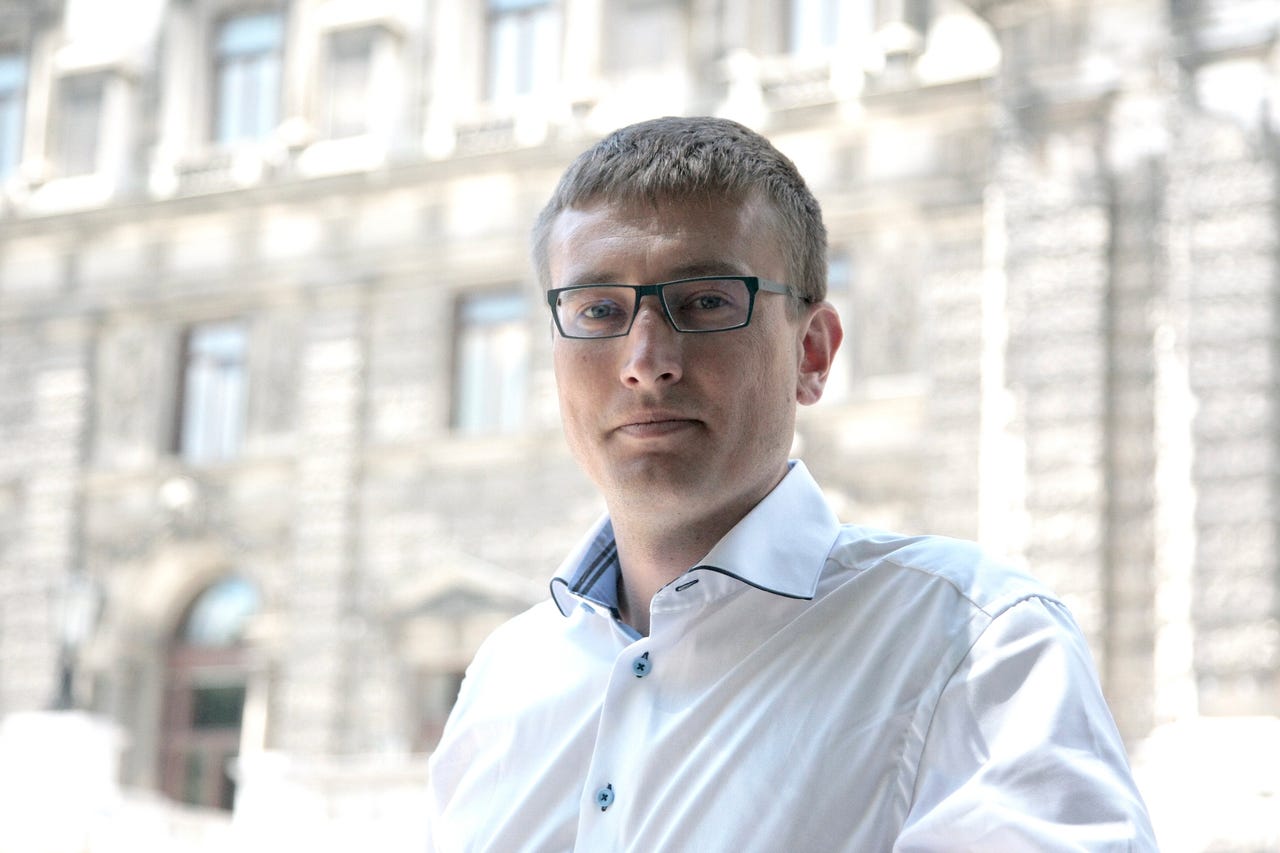Revenue up 2,000 percent in five years? The Czech tech startup that's growing like crazy


Simplity chief Petr Mahdalicek: "I saw way too many data projects end unsuccessfully. The lifecycle was longer than expected and the costs were at least twice as high as projected."
Central and Eastern Europe's IT markets are comparatively young. But that immaturity does not preclude some of the indigenous companies for achieving remarkable and sustained growth over the years.
Racking up revenue growth of almost 2,000 percent in the past five years, Czech data-analysis startup Simplity topped last year's Technology Fast50, the list of the fastest-growing tech companies in the region.
Since the company was only founded in 2010 and Deloitte just looked at the growth from 2011 to 2014, it is not surprising that the Prague- and Vienna-based company is a newcomer to the list.
The main thing that sets the company apart from its cousins in Central Europe is its decision to go international from its founding, Petr Mahdalicek, the company's founder and CEO explains.
"In three years, we gained customers in online bank Raiffeisen and T-Mobile," he says. "We now have projects running from Moscow to Dublin."
Simplity deals in data but not exactly in the big-data sense.
"Sure, there was talk of big data, but rather than using the buzzword, customers were just talking about large amounts of data," Mahdalicek, who has worked for Oracle and Accenture in the past, says.
He and his colleagues at Simplity looked at the more traditional fields of data warehousing and business intelligence and decided to merge IT and business consulting into one process. That move is less obvious than it sounds, according to Mahdalicek.
"I decided to start Simplity because I saw way too many data projects end unsuccessfully," he says. "The lifecycle was longer than expected and the costs were at least twice as high as projected. I thought I could solve those problems."
Simplity was built on a model, which was first used by Teradata, which he calls business-information modelling, or BIM, which according to Mahdalicek translates business requirements into IT processes on the fly.
"I saw an early version in use at Teradata, but they didn't want to develop it further," he explains. "I convinced some people from Teradata to work with me, so that's where it comes from," he says.
"Around 70 percent of failures are because they turn out to be business projects driven by IT. For the business side, the project requirements appear to be clear. However, it's far from clear for IT if it's not documented properly. You can't expect that IT will just give you your solution based on guesswork.
"IT understands the consequences, and they understand how to carry out big projects. But they cannot be the driver. If IT needs, say, 10,000 man-days, then the business should invest at least the same amount of time in supporting the program. The means and the goal are often confused."
So the first tool Simplity designed was specifically aimed at bridging the divide between IT and business.
"Usually, the project uses different products for business and IT. IT likes to use tools like Power Designer or Enterprise Architect. But these are too complicated for business people," he says.
"They prefer process-oriented tools, but IT does not like them because they are not specific enough. However, both groups are working with the same data. Only the view differs. So we brought two different views to the same application."
Another common issue, Mahdalicek says, is what he calls lack of harmonization of the data.
"When you have dozens of people of different departments in a project, you usually divide them into several groups", he says. "I've seen IT building not one system, but several systems within that system as several requests are duplicated."
At banks, for example, different departments often ask for the same functionality, but call it by different name. "Or they call it by the same name, but mean different things."
See also
Now, Simplity offers a whole suite of products that are becoming popular among financial institutions in Europe and which are resulting in impressive growth.
"We plan to open an office in Silicon Valley this year," he says.
It is a choice he made mainly because specific challenges of the Central European market to do with business costs and opportunities are already becoming an issue.
"When I founded the company in 2010, it was not so hard to get good resources, including people, and get them cheaply," he said.
"If you bought them in Eastern Europe and sold them in Western Europe, you earned money. The problem right now, and all EU countries have this, is how we will manage human resources in the future.
"The salaries are growing dramatically and are very high everywhere. Large international players have opened offices here, almost every month. Especially in the Czech Republic, as the country has the second lowest unemployment index in the whole EU."
Salaries in IT have already passed twice the national average, and often come closer to three times the average.
"Local clients are not willing to pay what they paid five or 10 years ago. So on the one hand, the salaries are growing, while customers are demanding lower prices. That is why we are looking for new markets, including the US."